Can Dogs Eat Cottage Cheese?
Alright, let’s chat about one of our go-to fridge essentials – cottage cheese. It’s scrumptious and keeps us healthy, but can our favorite fur pals enjoy some too? I bet you’ve asked yourself, “Can my little buddy have some of this cottage cheese goodness too?” We’ve all been there.
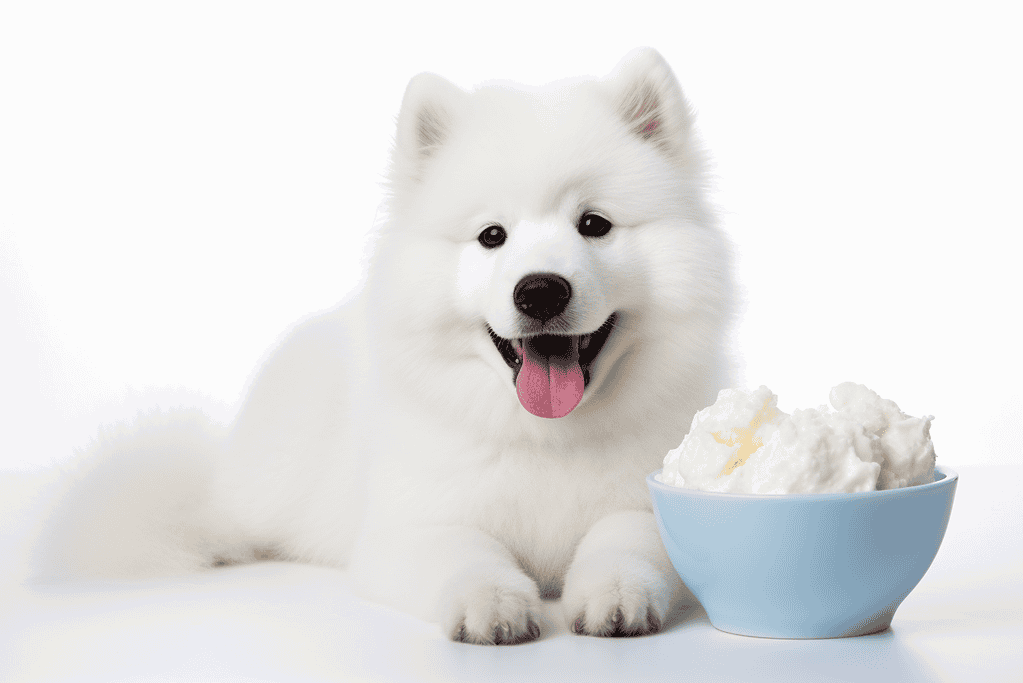
Here’s a reason to do your happy dance – YES, our dogs can snack on cottage cheese…but hold on, in moderation! It’s a rockstar source of protein and calcium, which are totally paw-some for our dogs’ health, as long as we’re not going overboard. But let’s throw this in – just like us, some pooches aren’t dairy fans. Lactose intolerance isn’t just a human thing, it can crash our fur buddies’ digestive party too. So, roll it out slowly and watch for any conspiring tummy troubles. Slightly strange but totally true!
Health Advantages of Cottage Cheese
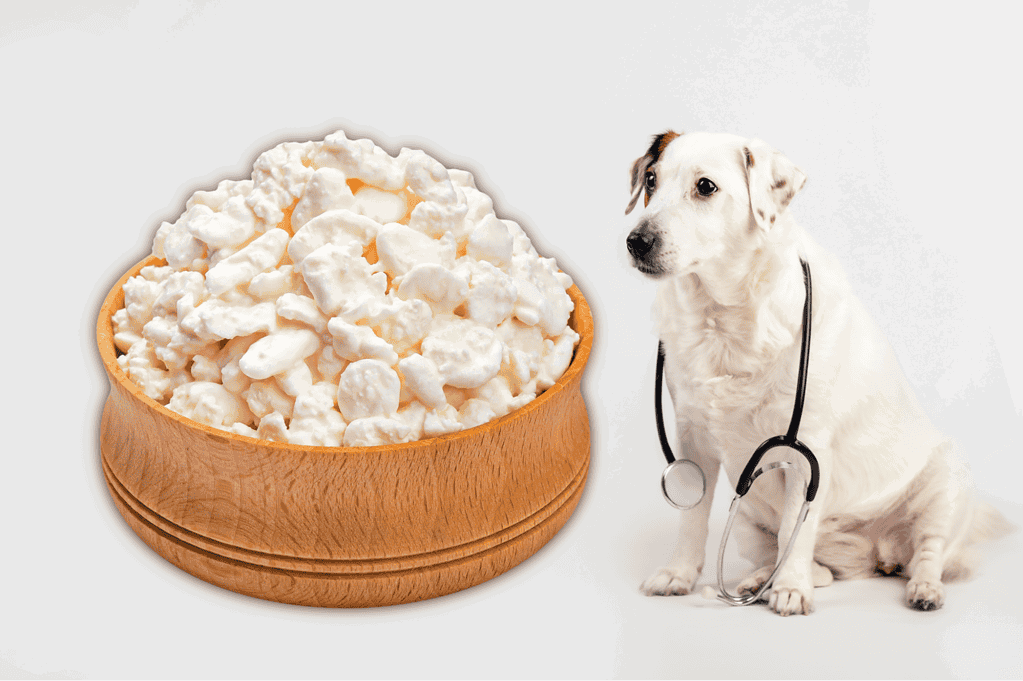
Ever asked yourself why cottage cheese is such a catch for our fur buddies? Let’s dive into some fun facts!
Protein Packed and Low Fat
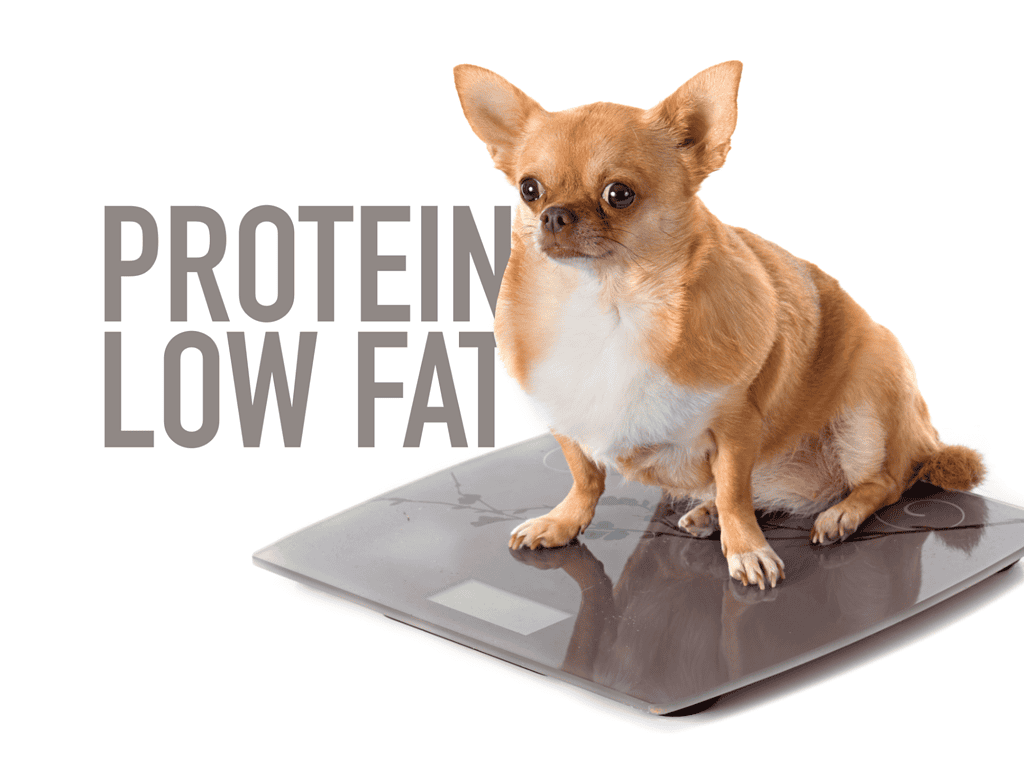
First, this dairy delight is a dynamite source of protein, helping your pooch maintain and repair those muscles and keep them healthy. Plus, it’s not a calorie-count-buster. It’s surprisingly low-fat compared to other cheese types, so it’s an absolute winner for our chubbier friends or those on a diet.
Good Fats and Controlled Sodium
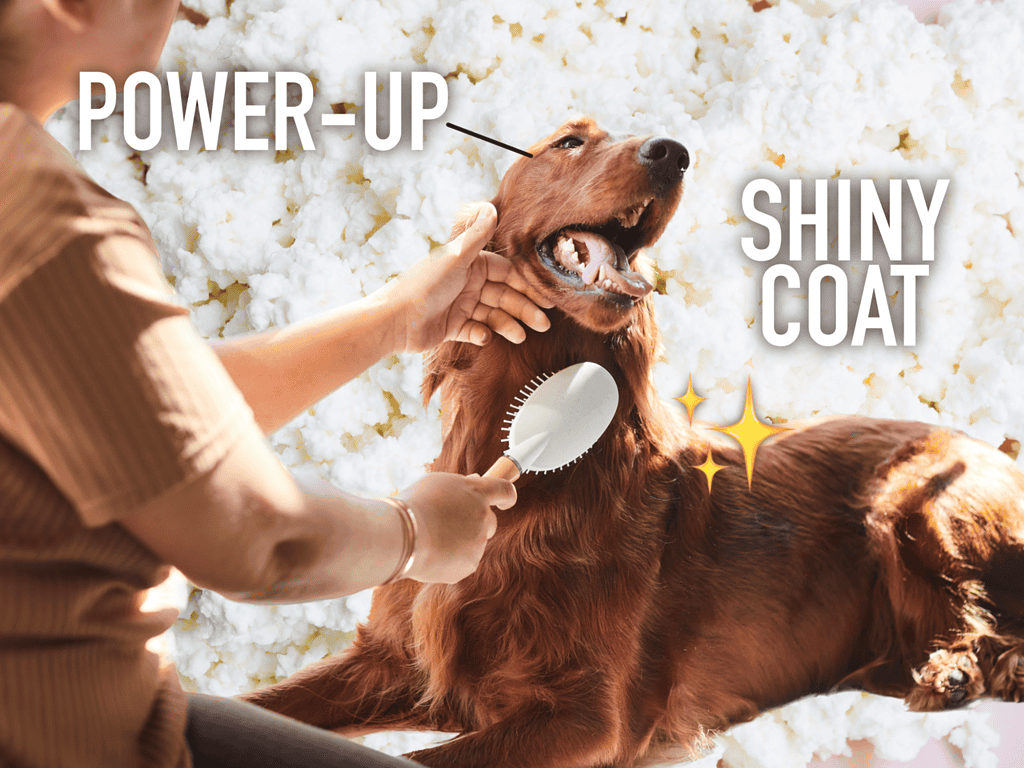
And it doesn’t stop there. The fats in cottage cheese are the good kind—the kind that powers up your dog’s brain and makes their coat shinier. Since it has a relatively low sodium content, it’s a handy pick for fur pals with fat-related health issues.
Multivitamins
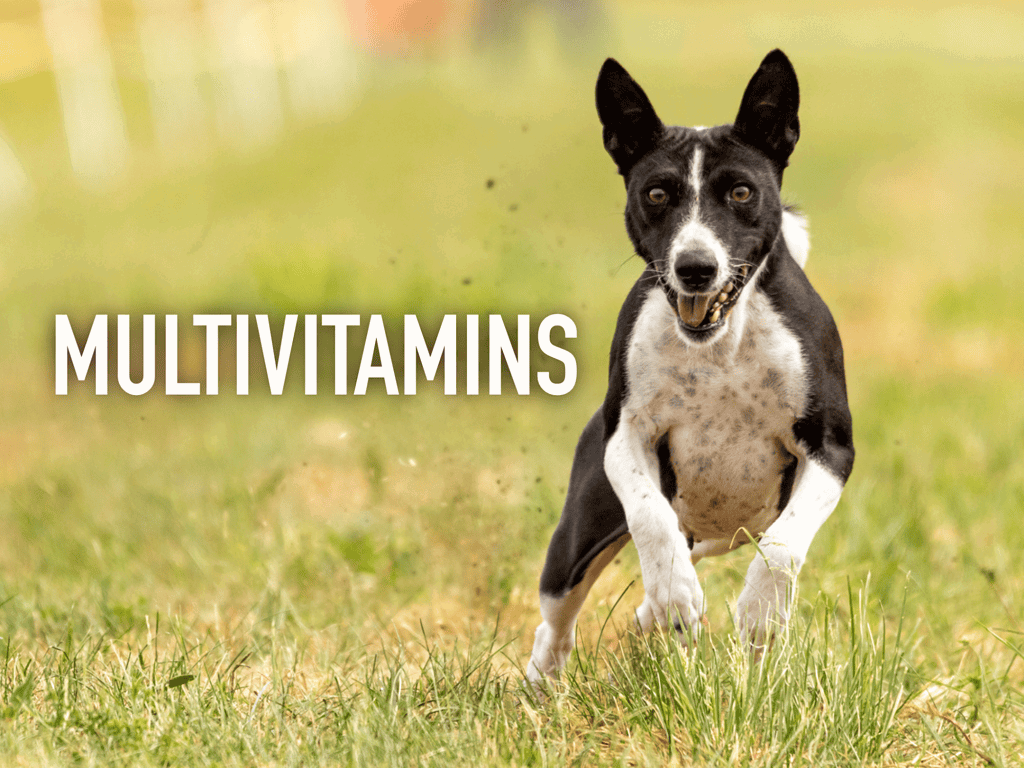
But wait, there’s more! Cottage cheese is like a multivitamin in edible form. Think vitamin A for sharp eyes and strong immunity, vitamin B1 for energy metabolism and stable nerves, and potassium for a happy heart and balanced electrolytes. How’s that for a tasty treat?
Digestion-Friendly Probiotics
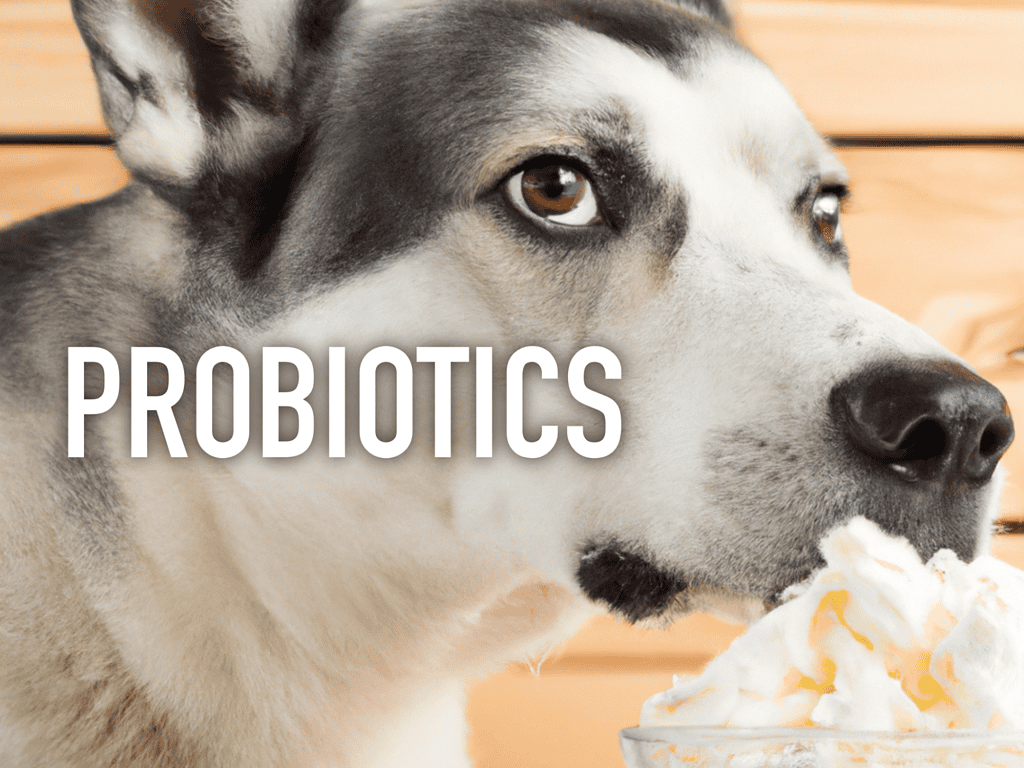
And oh, let’s talk about those friendly bacteria called probiotics. They’re all about helping digestion and keeping the immune system strong. They come in seriously handy for those little stomachs that get upset easily and for those on the mend from tummy troubles.
So, all in all, cottage cheese is like a health package wrapped in deliciousness! Given in moderation, it jacks up your fur buddy’s diet with a whole lot of good stuff. Can I get a bark for cottage cheese?
Potential Health Concerns
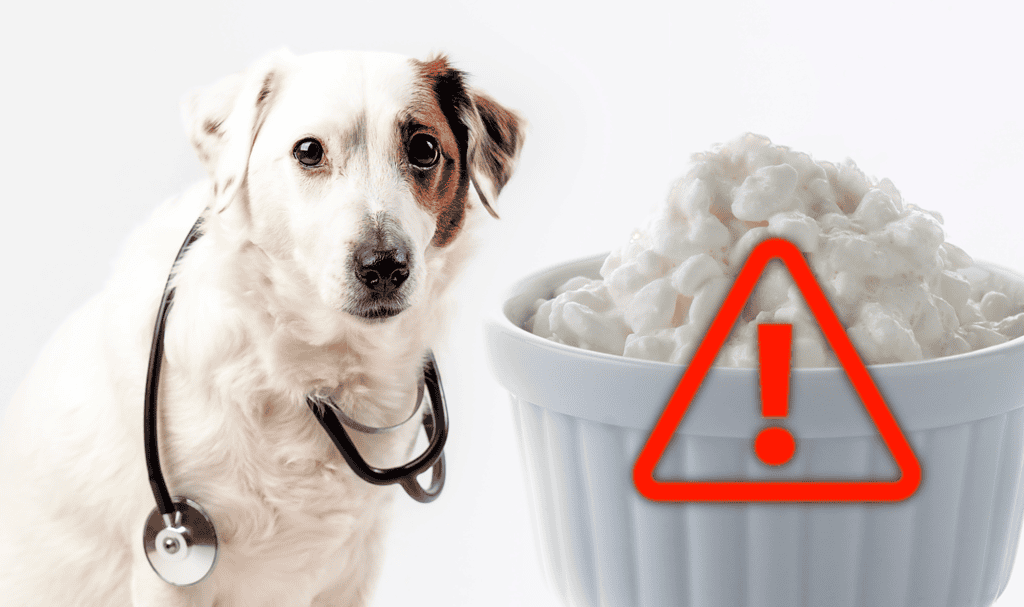
Cottage cheese can be a healthy treat for dogs in small amounts, as it contains low-fat content and essential nutrients like protein and calcium. However, there are certain situations when cottage cheese may not be appropriate for all dogs.
Lactose Intolerance

First things first, the dairy dilemma. Not every pooch can handle that dairy goodness. For some, lactose can party-poop and cause gastrointestinal problems like diarrhea and vomiting. So, if you’re considering introducing dairy-like cottage cheese, think small first and watch out for any queasy looks our fur pals might shoot us.
Sneaky Ingredients
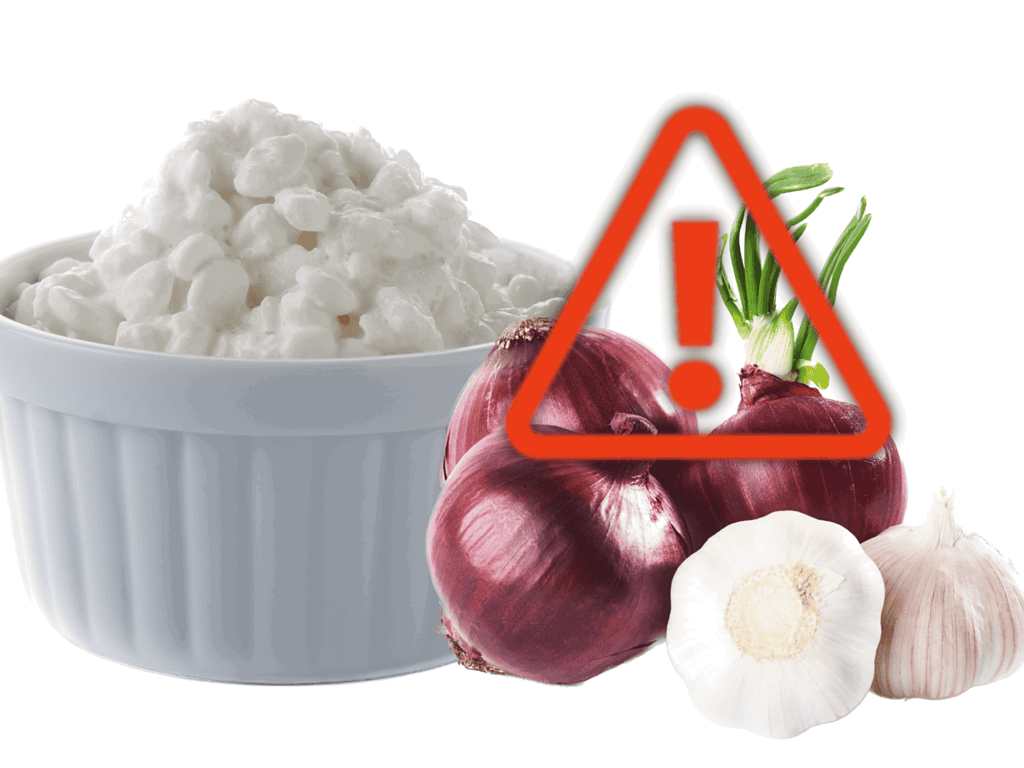
In cottage cheese, not everything is as innocent as it seems. Some brands sneak in stuff like garlic and onions, which for our furry friends, is a big no-no! It can cause anemia and other blood troubles. So, always get your reading glasses on and check those labels before feeding.
Weight Gain And Sodium Content

Here’s another thing we need to add to our watchlist – weight gain and sodium. The healthy fats in cottage cheese can pack a punch if we get too generous. So, keep it as a once-in-a-while treat to avoid “floof” turning into flab! And then there’s sodium, it’s sneakily high in cottage cheese and can cause problems, especially if your pooch has a heart condition or kidney issues.
Pancreatitis and Bloating
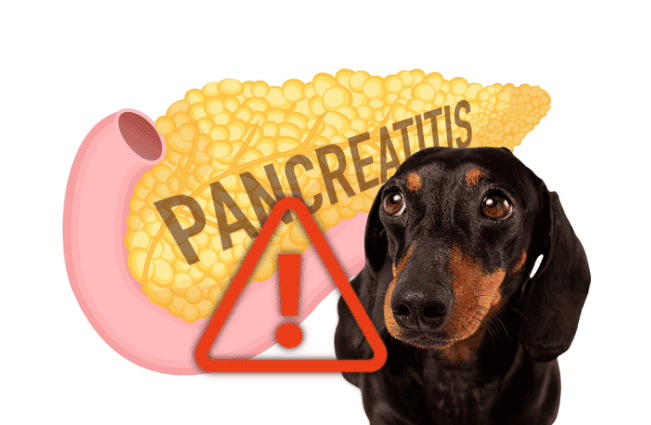
Feeding foods high in fat can sometimes trigger pancreatitis in dogs, an inflammation of the pancreas in dog-speak. Although cottage cheese is on the lower end of the fat scale, keep an eye on the feeding amount. Balanced meals are the key! Also be vigilant for bloating, which has its own belly-based problems!
So, while our fur pals might get excited for that cheesy treat, always serve in moderation. And remember – monitor, monitor, monitor. Whether it’s a sensitive stomach, unexploded weight gain, or sneakily high sodium, watch out for these potential health concerns. Cottage cheese? Can do, but with caution and awareness!
Enjoying this read?
We publish this content for free to generate interest in our Premium members' area. By subscribing, you can ask the writer any questions related to pet care and this article, get access to 100+ Premium Pet Care Guides and go Ad-Free with DogFix Premium for $2.99.
Cottage Cheese as a Training Tool
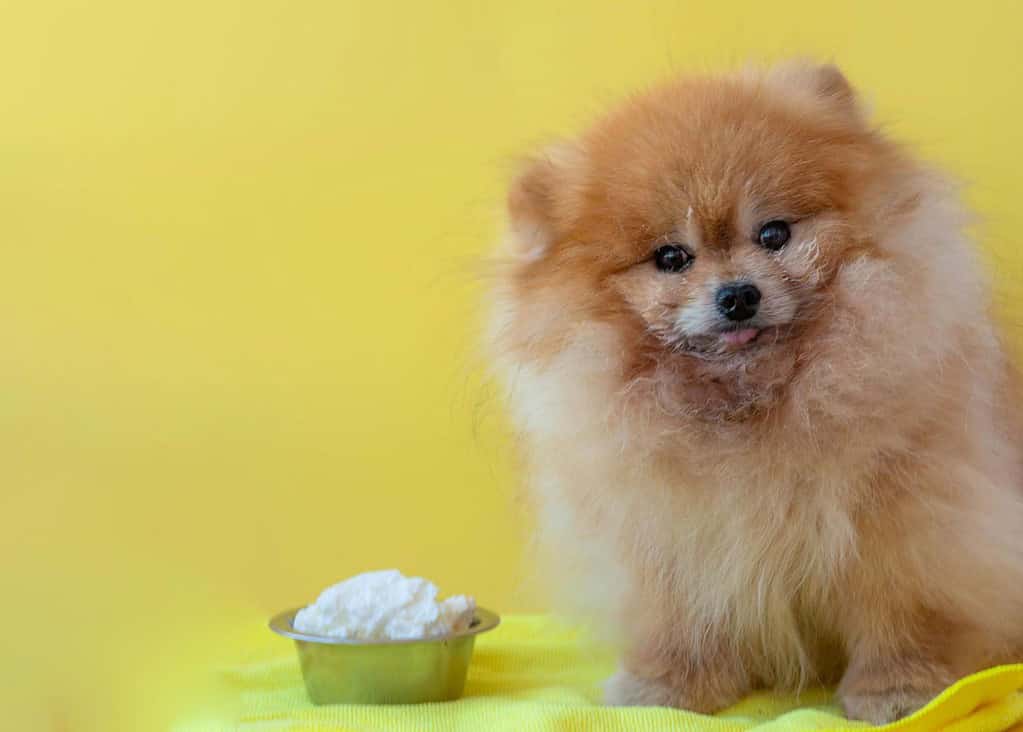
Thinking about how to say “good job” to your pooch in a nutritious yet delicious way during training sessions? Why not try cottage cheese? It’s tasty, full of powerhouse nutrients, and it’s also a bit… gourmet, don’t you think?
Nutritious Reward
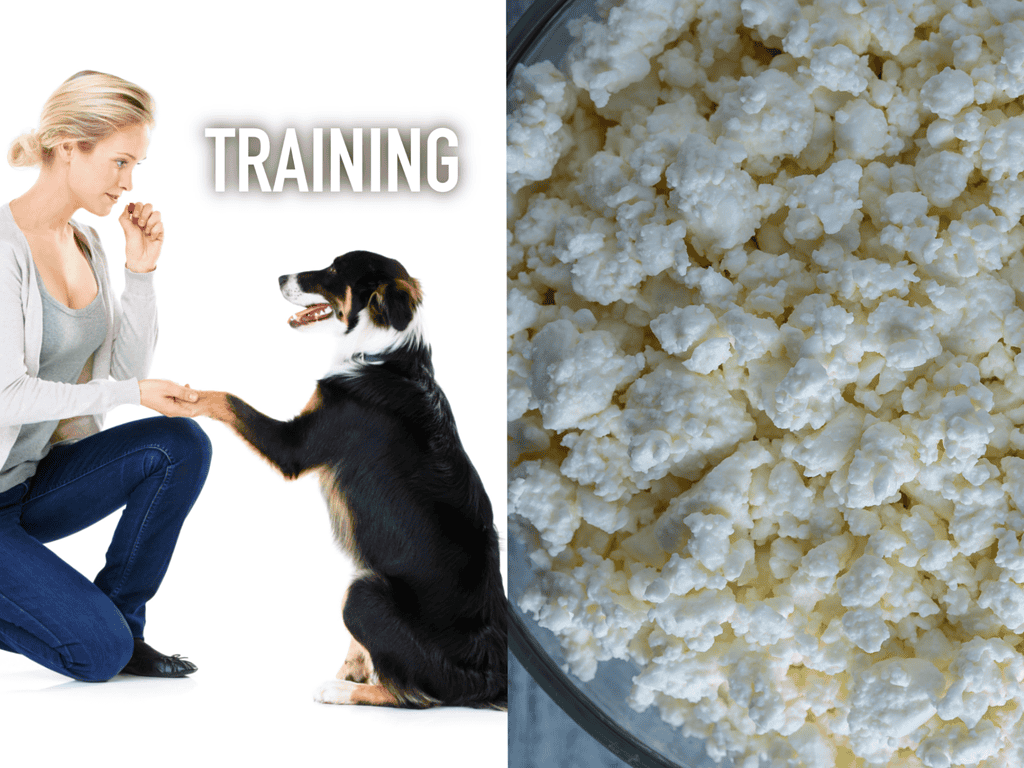
Here’s the cool part – cottage cheese is packed full of protein, low-fat, and low-cal, which makes it one heck of a healthy training snack. But remember, some dogs might be lactose intolerant or sensitive to dairy products, so keep an eye out for any reactions that scream ‘discomfort.’
The Cheese Approach in Training
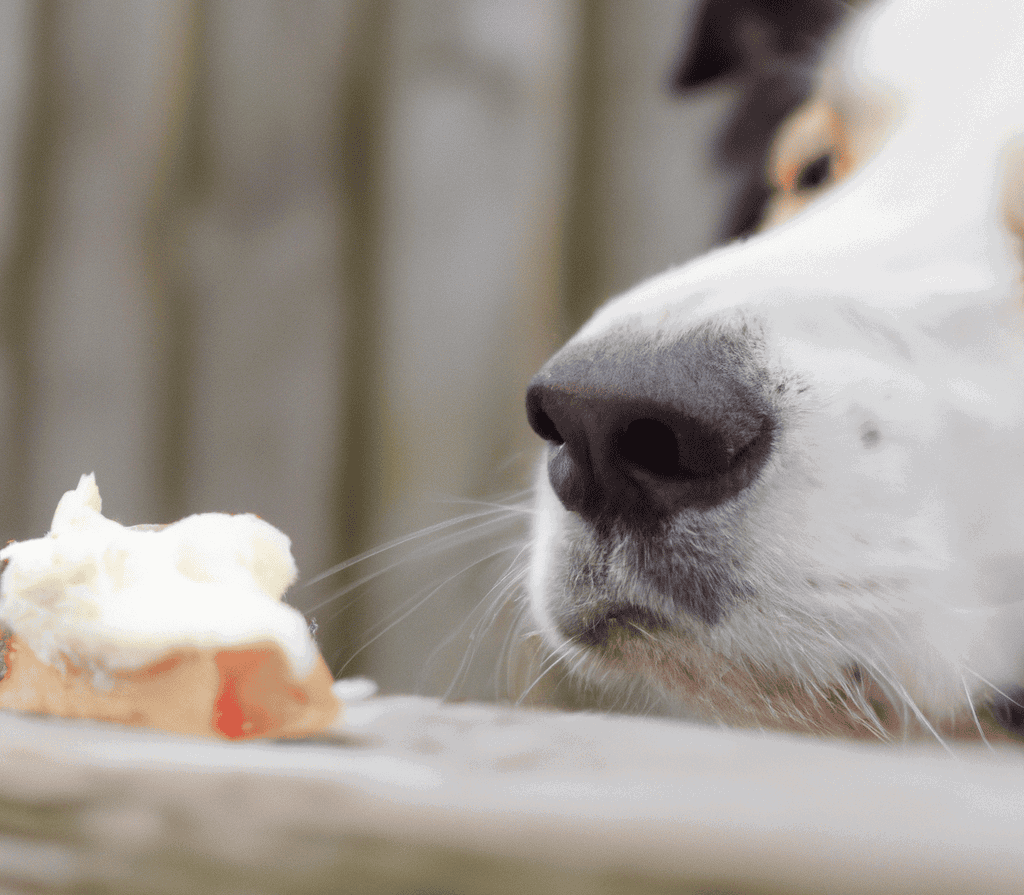
Thinking of introducing the cheese as a training tool? Here’s some advice. Take it slow and start small, kind of like introducing your fur buddy to swimming. Go for the plain, unflavored variety. Watch out for any signs of distress like gas or tummy troubles, and if that happens, it’s time to switch to another snack (believe me, there are a whole bunch to choose from!).
In conclusion, cottage cheese could be the answer to a fun, flexible, and filling addition to your training repertoire. Of course, you’ve got to watch your fur pal’s response and ensure you’re not going overboard with it. Remember, it’s all about balance and ensuring our fur friends are as happy as a pup on a beach day!
Preparing Cottage Cheese for Your Dog
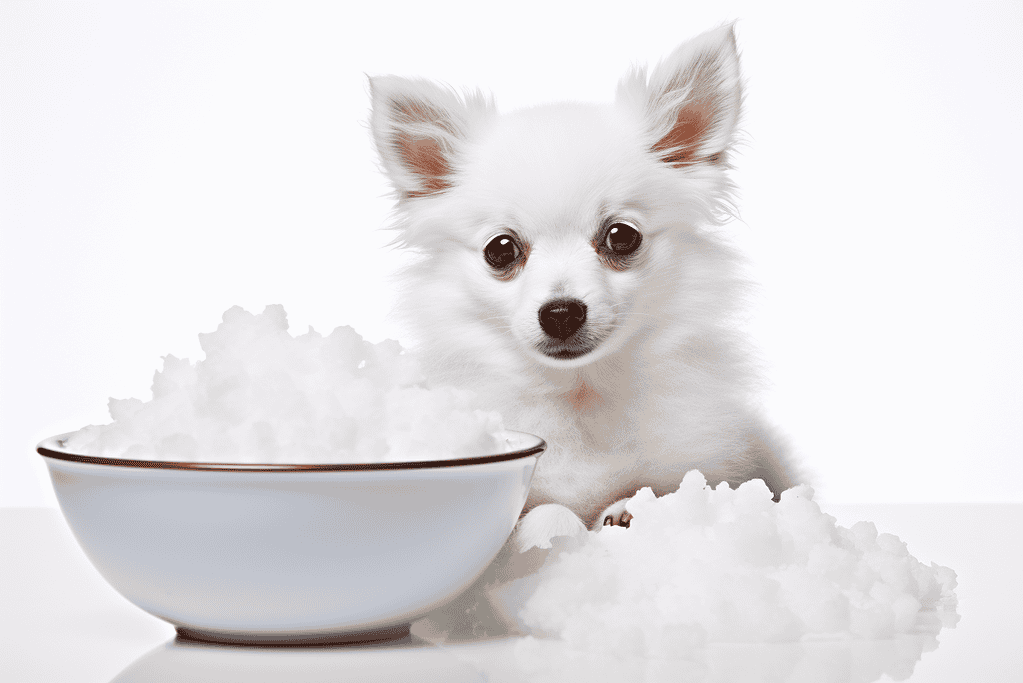
So, you’ve decided to board the cottage cheese train for your dog. Awesome! But how, you might ask? Let’s dish out some cheesy tips.
Low-Fat and Small Serving Size
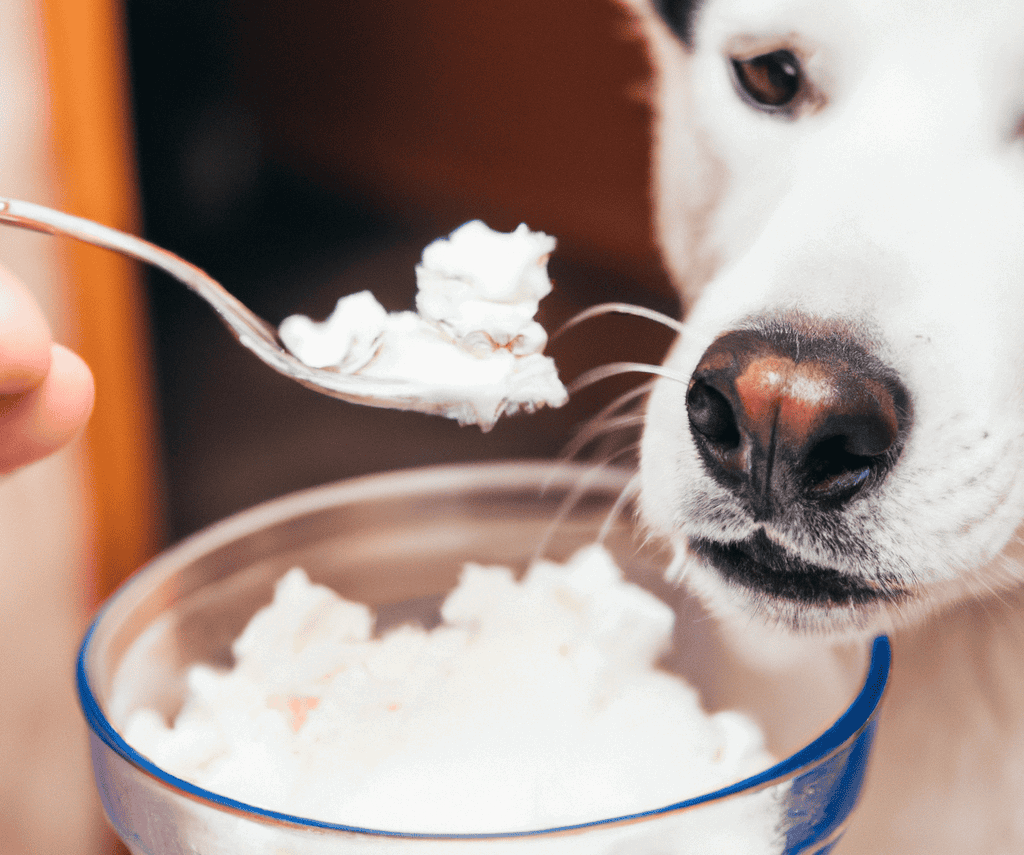
First up, let’s go for the low-fat or non-fat variety. Lighter on the stomach, lighter on the scales! Also, remember that we don’t want to replace those doggie meals. A few spoonfuls a day as part of their diet should be paw-fect.
Recipes

Now, let’s talk about recipes. Oatmeal and cottage cheese, anyone? Imagine a combo filled with fiber and good stuff, and you got an irresistibly healthy yet tasty dish. Or why not a peanut butter-cottage cheese delight? But wait up, pick dog-safe, unsalted peanut butter without nasties like xylitol.
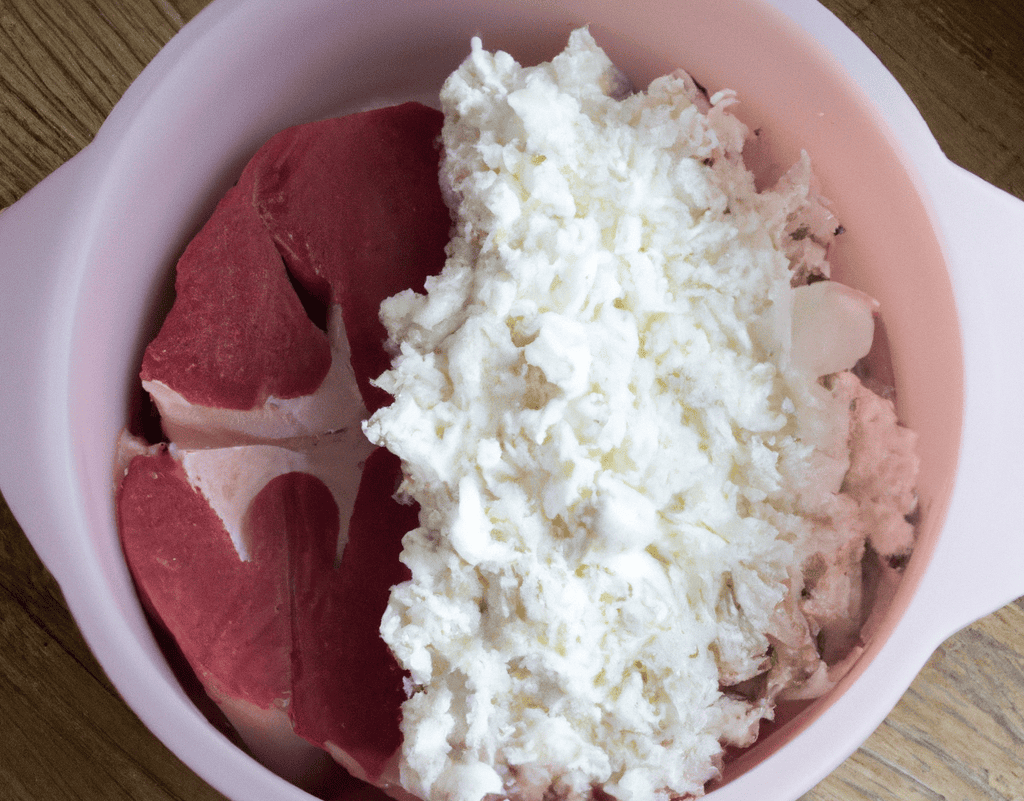
For pups with sensitive stomachs munching on a bland diet, a mix-up of low-fat meats and cottage cheese might just do the trick! It’s balanced, gentle on the tummy, and of course, yum! Or, make that boring kibble shine by blending it with cottage cheese. Trust me, your fur pal will be doing the happy tail dance!
Upcycling Leftovers
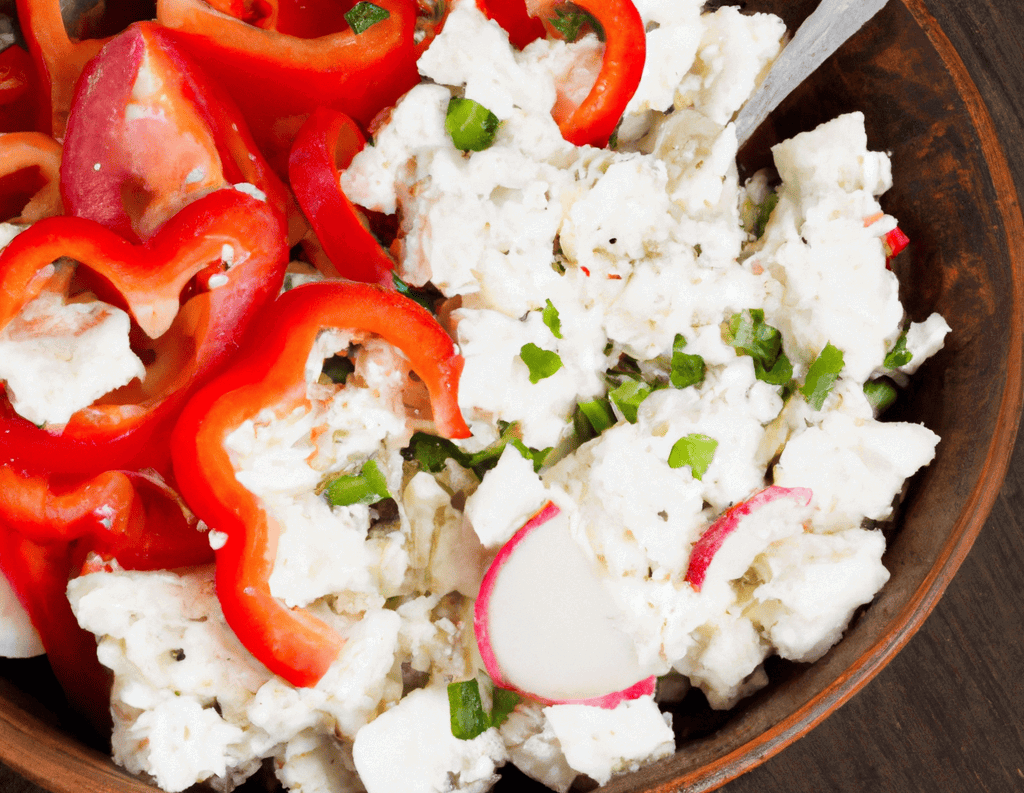
Use your leftovers smartly! Plain-cooked veggies or rice are great to mix with a dash of cottage cheese. Remember, our fur friends can’t handle all the seasonings we enjoy. So, keep it simple and steer clear of no-no ingredients.
Cottage cheese can certainly groove up your dog’s food bowl. Keep it creative, keep it safe, and always watch for your fur friend’s reaction to these gourmet delights. Remember, when in doubt, hit up your vet for some professional foodie advice!
Cottage Cheese FAQ: The Must-Knows
Alright, let’s tackle some of the questions you might have swirling around your canine-craving brain.
Is cottage cheese cool for dogs with diarrhea?

Well, the answer is maybe. We’re dealing with dairy here, and some of our fur pals just can’t handle it, leading to more of the runs. The crucial tip here is to start small, wait, watch, and make a call based on your doggy’s reaction.
What form of cottage cheese is best for fur friends?
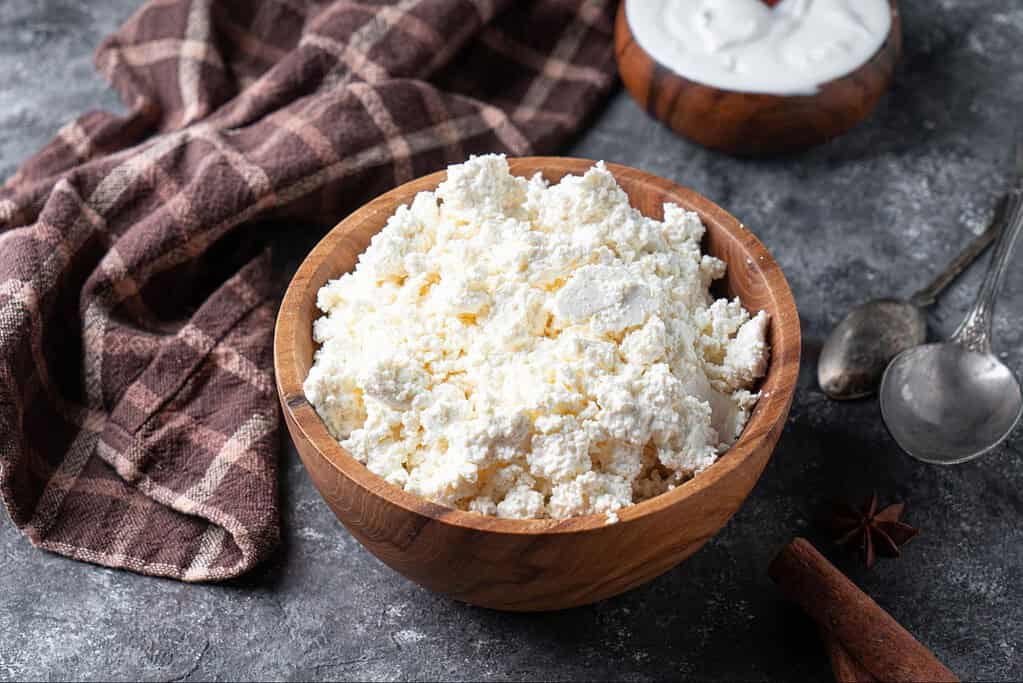
Our pick? The plain-Jane, low-fat variety. Stay away from funky flavored ones or varieties with added sugars or salt. Less seasoning, happier pooch.
How much of this cheesy treat can my dog have?
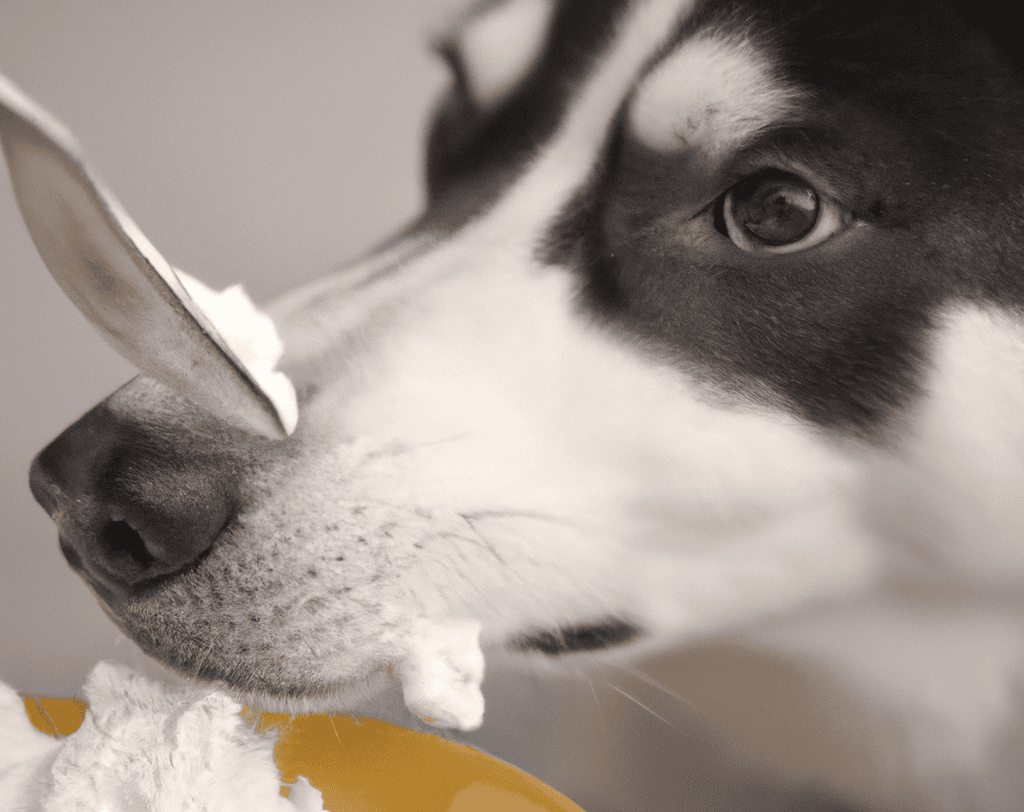
Well, cottage cheese is like that special once-in-a-while dessert for us. Use a tablespoon of this creamy delight for every 15-20 pounds of your fur buddy’s weight. But as always, keep a close eye on how your dog reacts and tweak the serving size if needed.
Can cottage cheese help my dog with pancreatitis?

Cottage cheese is usually lower in fat than other dairy so it might be a good snack for a dog dealing with pancreatitis. But remember, new foods, especially for pups with health conditions, should get the thumbs up from your vet first.
Yogurt or cottage cheese: Which is healthier for heads-up regarding dogs?
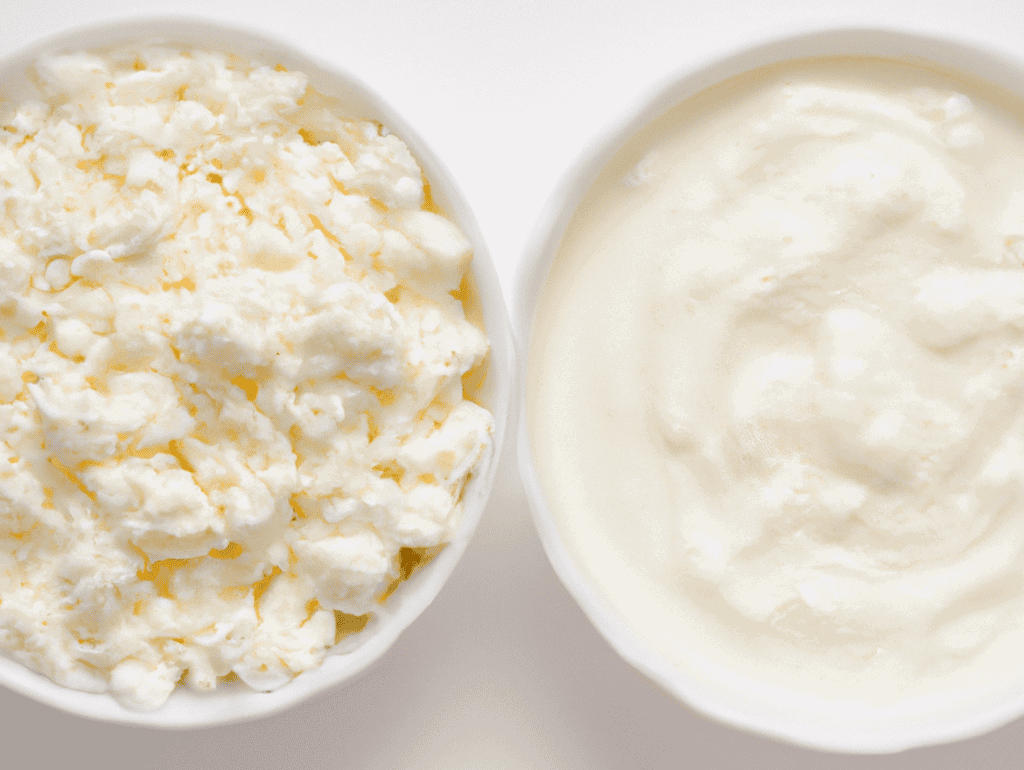
It’s really apples and oranges here. Both yogurt and cottage cheese have their own unique perks for dogs – yogurt with gut-helping probiotics, cottage cheese with protein, and healthy fats. What’s best for your fur friend really depends on their specific dietary needs.
Are there side effects of feeding my dog cheese?

Yep, there can be. Just like us, some dogs could be lactose intolerant or struggle with digesting dairy. Plus, cheese can pack a punch with fat that could lead to weight gain. So, when you do serve cheese, pick the low-fat plain kind and keep it occasional.
Quick Recap on Dogs And Cottage Cheese
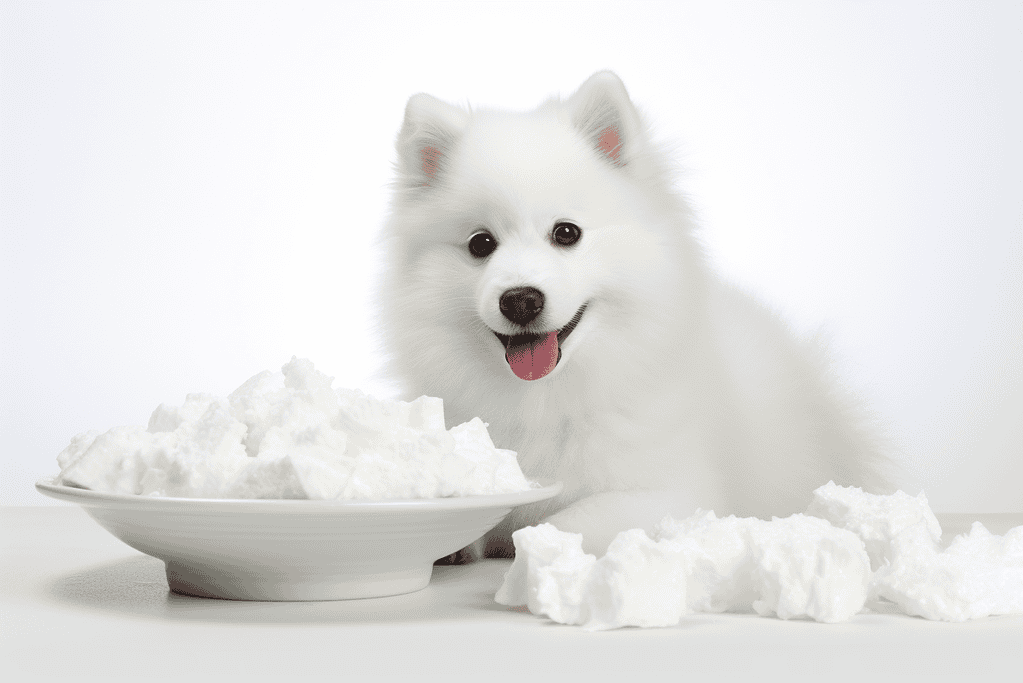
- Cottage cheese can benefit dogs in moderation as it’s a source of protein and calcium.
- Be cautious when introducing cottage cheese to your dog’s diet, as some dogs may be lactose intolerant.
- Always monitor your pet’s reaction and health when incorporating cottage cheese into their diet.
